
8 minute read
Top 10 Indian Poets

From Vedic Sanskrit poems in the ancient Vedas crafted over 10,000 years ago to Hindi and English verses by Indian poets in modern times, poetry has found a special spot in the literary world. India has been the birthplace of some of the most versatile and talented poets and writers. Be it ancient poet Ved Vyas, Nobel prize winner Rabindranath Tagore, spiritual guru Kabir, or religious poetess Mirabai, each has been an iconic figure in the literary history of the country. By no means does the list end here, it is just a glimpse into the varied talent that exists. The country has also served as the birthplace of many more eminent poets whose works were a reflection of the social trend and guidelines for society. These include Kalidas, Tulasi Das, Sarojini Naidu, Nissim Ezekiel, Sri Aurobindo Ghosh, Narshin Mehta, Mahadevi Verma, Henry Vivian Derozio, Mirza Ghalib, Kamala Das, Amir Khusrow, Amrita Pritam, Mir Taqi Mir, Rahim, Gulzar Harivansh Rai Bachchan, Ramakrishna Paramhansa, and so many more. The versatility of these poets is such that they have penned not just in Hindi but also the nonliterary languages of different states in India as well as in English.
Advertisement
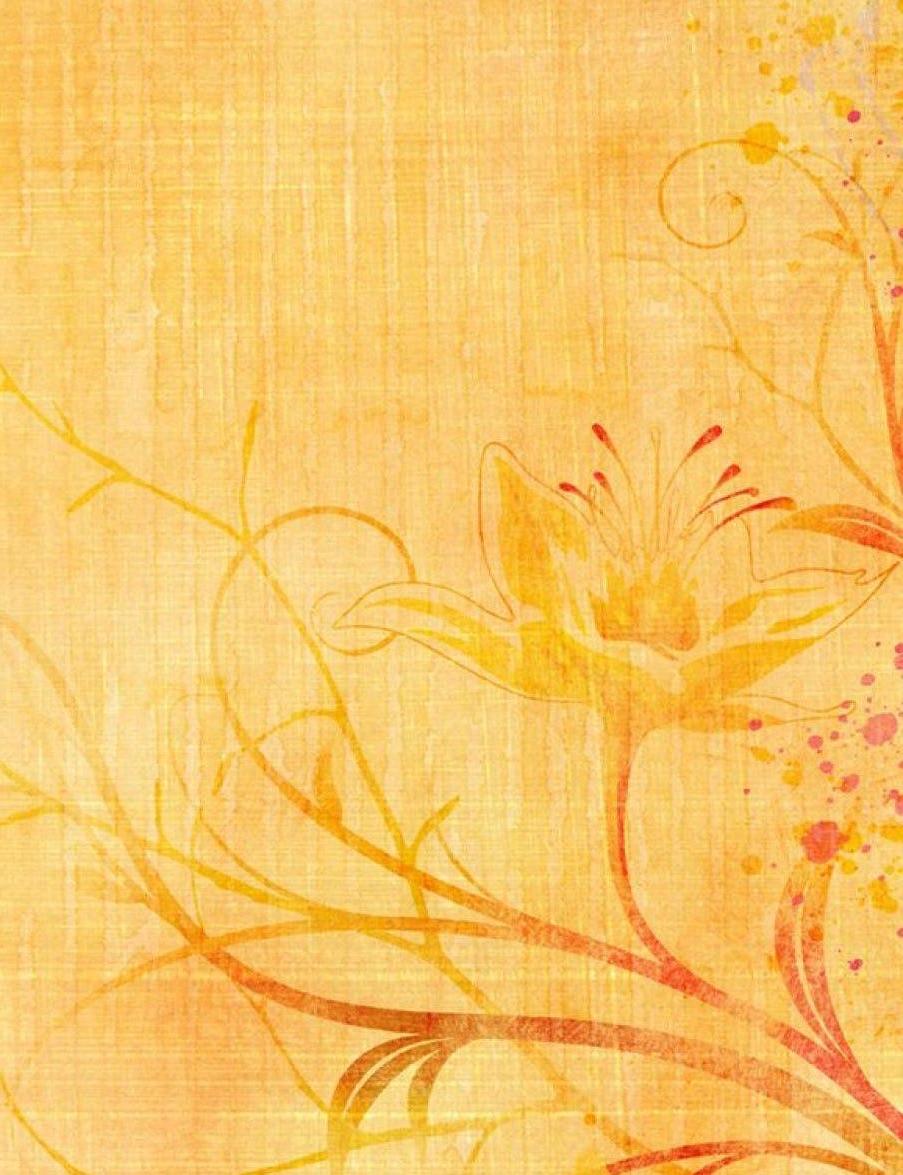
With some awe-inspiring biographies presented in this article, read on to know to learn more about the life and works of those considered to be the top ten Indian poets.
Mahadevi Verma (March 26, 1907 – September 11, 1987)
Mahadevi Verma was born in a Hindu family, and it was her mother who inspired her to write poems at an early age. As a poet, Verma is known as the “modern Mira” due to her emotional sentiments and love of nature. She has been called the grand dame of Hindi literature. Verma held the position of ViceChancellor of Prayag Mahila Vidyapeeth and was awarded the Padma Vibhushan. Rabindranath Tagore wrote successfully in all literary genres, but was primarily a poet and lyricist for his own popular songs. In 1913, he became the first Indian to win the Nobel Prize because “of his profoundly sensitive, fresh and beautiful verse, by which, with consummate skill, he has made his poetic thought, expressed in his own English words, a part of the literature of the West.”
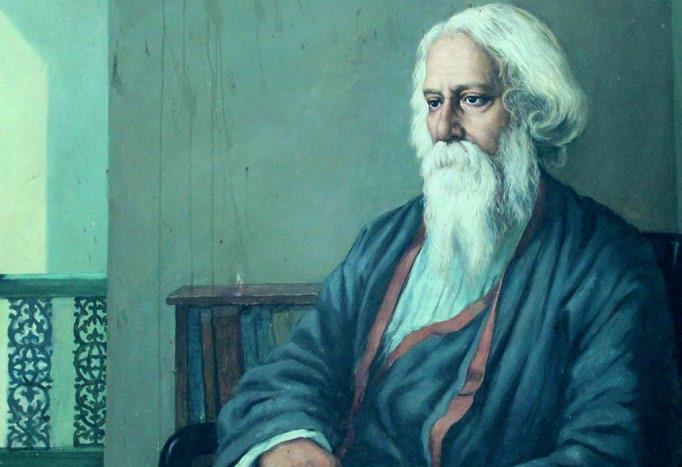
Kalidasa (4th - 5th century CE)
The ancient Sanskrit poet Kalidasa is widely regarded as the greatest Indian writer-poet of all time. Kalidasa means “the one who serves Goddess Kali.” His most celebrated work is the Sanskrit play Shakuntala, which is a dramatization of a Mahabharata episode relating to the daughter of Sage Vishwamitra. Shakuntala was the first Indian play to be translated into a Western language, and it has since been translated into at least 12 European languages. Kalidas has had a great impact on Indian literature and several subsequent poets, including Rabindranath Tagore.


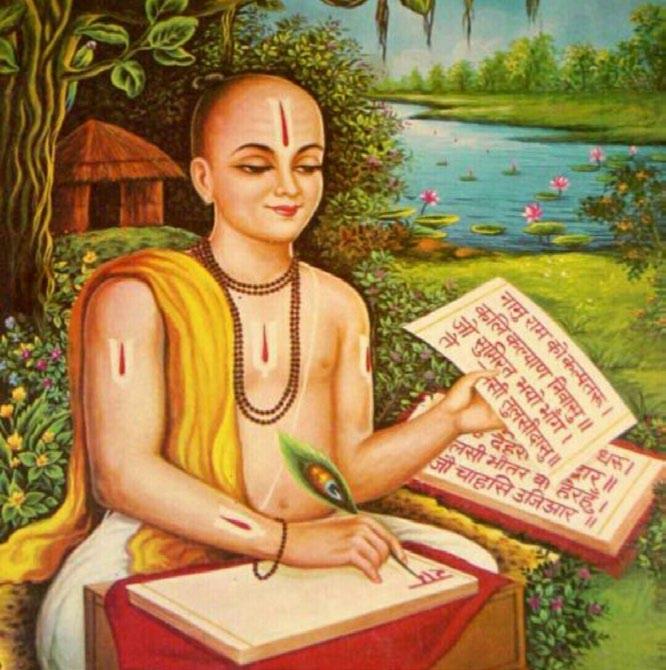
Tulsidas composed the epic poem Ramcharitamanas, which is thought to be one of the greatest works of Hindi literature. It re-tells the Sanskrit Ramayana in language that the common man can grasp.
Nissim Ezekiel has been hailed as the father of post-colonial Indian English poetry. Innovative in technique, he subtly explored themes relating to everyday Indian life and helped move Indian-English literature beyond oriental and spiritual themes. Below is an extract from his poem The Patriot that is written in a distinctive Indian-English style. Written years back, it still applies for modern day lifestyle. I am standing for peace and non-violence. Why world is fighting fighting? Why all people of world Are not following Mahatma Gandhi, I am simply not understanding. Ancient Indian Wisdom is 100% correct, I should say even 200% correct, But modern generation is neglecting - Too much going for fashion and foreign thing. Nissim Ezekiel (December 16, 1924 – January 9, 2004) Gandhiji conferred Sarojini Naidu as the “Nightingale of India” began her writing career at the age of 13. The widely acclaimed book The Golden Threshold was her first collection of poems published in 1905. It combined traditional poetic forms with lush images of India. She earned worldwide praise from English writers such as Edmund Gosse and Arthur Symons.

Naidu was also a political leader who played an important role during the “Quit India” movement led by Gandhiji. She was the first woman President of the Indian National Congress and also the first woman governor of an Indian state. Her works are rich in imagery and explore wide variety of subjects including nature, love, death and patriotism.
Kabir Das (15th century)
A poet admired by Hindus, Muslims and Sikhs all over the world, Kabir is a well-read poet in India. The poetry of Kabir is simple but comes with a profound life message and at the same is very easy to understand even for common people. Kabir is most renowned for his Doha also called couplets.
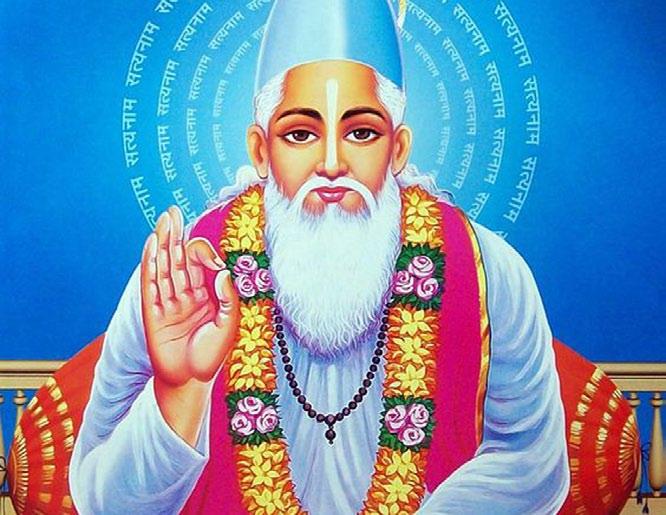

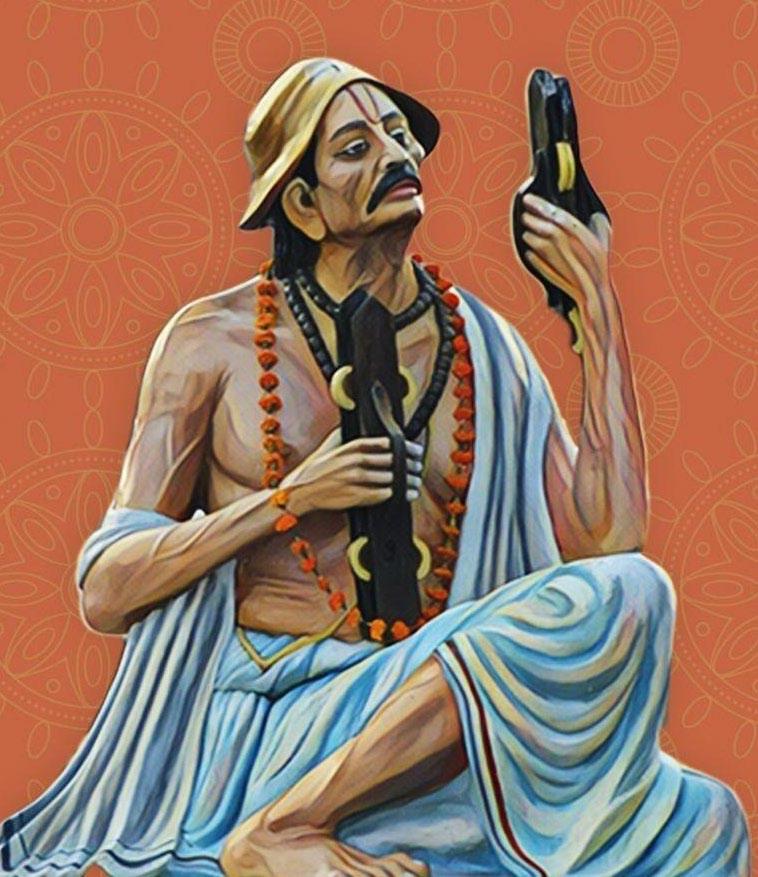
Narsinh Mehta a 15th-century poet-saint of Gujarat who inspired Gandhiji with one his famous bhajans, “Vaishnava Jana To.” He is known as Adi Kavi (Sanskrit for “first among poets”) in India and especially in Gujarat. Karen Pechilis, author of “The Poetry and Legacy of a Hindu Female Saint of India” describes Narsinh Mehta’s poetry,
“His poetry has circulated in diverse ways across centuries and regions, through melodic everyday songs, the social justice of Mahatma Gandhi, and the global reach of YouTube.”
Vaishnava Jana To Tene Re Kahiye, Je Peed Paraayi Jaane Re Para Duhkhe Upakāra Kare To Ye, Mana Abhimāna Na Āne Re Sakala Loka Mā Sahune Vande, Nindā Na Kare Kenī Re, Vāca Kācha Mana Niścala Rākhe, Dhana Dhana Jananī Tenī Re Sama-Drishthi Ne Trishnā Tyāgī, Para-Strī Jene Māta Re, Jihvā Thakī Asatya Na Bole, Para-Dhana Nava Jhāle Hātha Re Moha Māyā Vyāpe Nahi Jene, Dridha-Vairāgya Jenā Manamā Re, Rāma-Nāma Śhu Tālī Re Lāgī, Sakala Tīratha Tenā Tanamā Re Vana-Lobhī Ne Kapata-Rahita Chhe, Kāma Krodha Nivāryā Re, Bhane Narasaiyo Tenu Darasana Karatā, Kula Ekotera Tāryā Re

A Vaishnav, knows the pain of others Does good to others With out letting ego enter his mind. A Vaishnav, Tolerates and praises the entire world. Does not speak ill of others Keeps his promises, actions and thoughts pure his mother is blessed indeed. A Vaishnav sees everything equally, rejects greed and avarice respects women as he respects his own mother though his tongue may tire he will utter no untruth Never touches the property of others. A Vaishnav does not succumb to worldly attachments he has renounced lust of all types and anger The poet Narsi will like to see such a person by whose virtue, the entire family gets salvation.

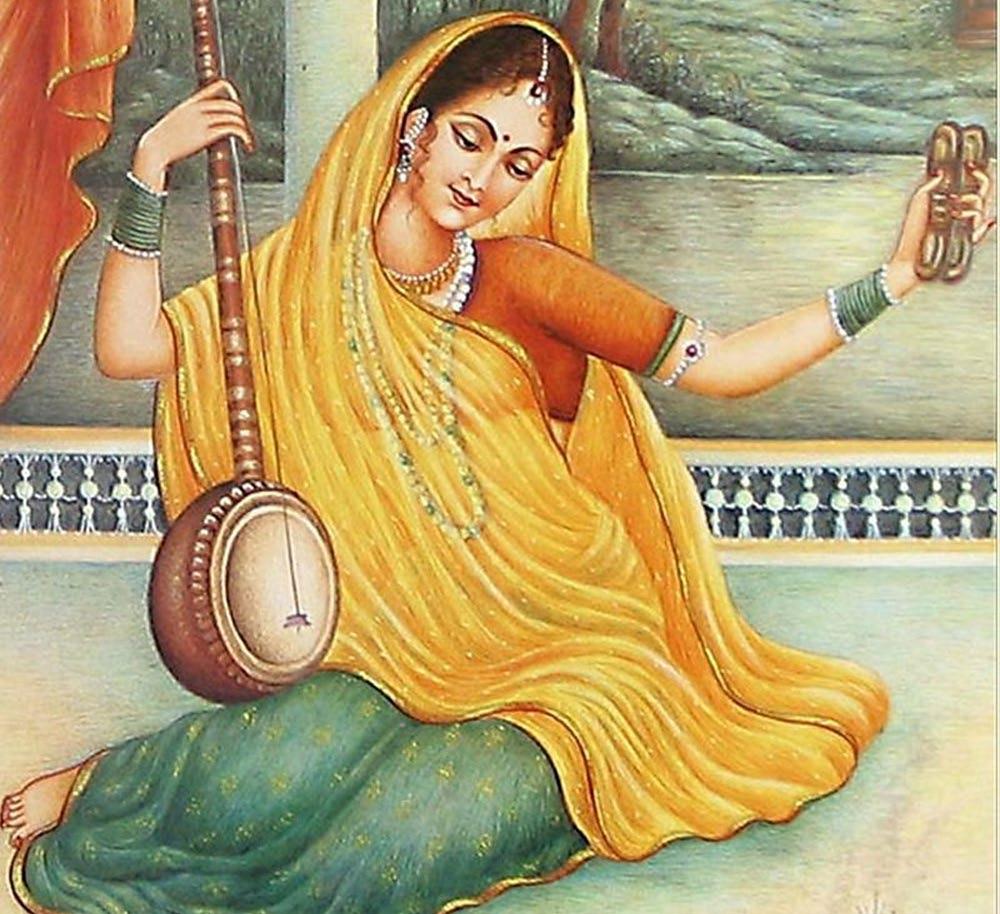
Most of us know Sri Aurobindo as an Indian philosopher, yogi, guru, and nationalist. But when you read some of his poems on themes of spirituality and mortality and translations of Vedas, Upanishads and the Bhagavad Gita, you will agree that his name should be included in this list of top 10 Indian poets.


K. D. Verma shared this about Sri Aurobindo in his book The Indian Imagination:
“It is no exaggeration to say that Aurobindo Ghose (Sri Aurobindo) is one of the greatest minds of the twentieth century. Aurobindo the mahayogi, Aurobindo the philosopher, Aurobindo the poet, Aurobindo the interpreter of Indian thought, Aurobindo the critic and Aurobindo the radical politician—all these hats fit him. I would argue that a proper and comprehensive revaluation of Aurobindo’s work and vision as a poet must take into account all aspects of his genius and achievement, for they are integrally related to the making of Aurobindo the poet.”
Here is an excerpt from one of his poem’s “Krishna.” At last I find a meaning of soul’s birth Into this universe terrible and sweet, I who have felt the hungry heart of earth Aspiring beyond heaven to Krishna’s feet
24 Mirabai was a 16th-century Hindu poet, a princess and devotee of Lord Krishna. She was in love with Lord Krishna from her early childhood and her poems are of love and devotion to her Lord. Her devotion to Lord Krishna made her go against the traditions and customs of her time and made her the most famous of the women poets of north India. Her love and devotion to Lord Krishna was the base of her writings. She has written poems exploring topics of divinity, mysticism, and love. Below is an excerpt of one her popular poems:
I am mad with love And no one understands my plight. Only the wounded Understand the agonies of the wounded,
As mentioned at the beginning of this article, choosing the top 10 Indian poets is not an easy task. We have attempted in this article to list them. We have included many more on our website: www.deshvidesh.com/ TOP10POETS. Also included are a few of their popular poems on our website.









